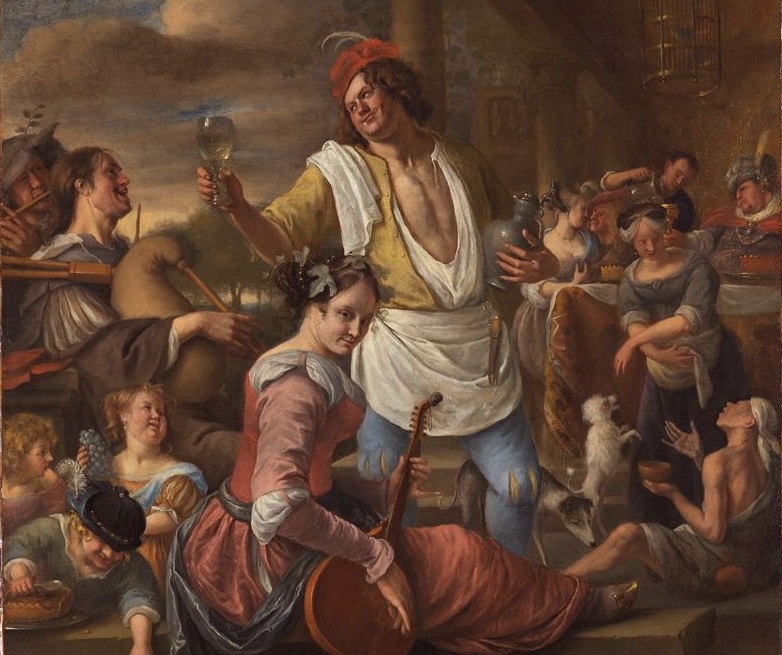Amos 6:1, 4–7 / Ps. 146:7–10 / 1 Tim. 6:11–16 / Lk. 16:19–31
The rich and powerful are visited with woe and exile in today’s liturgy — not for their wealth but for their refusal to share it; not for their power but for their indifference to the suffering at their door.
The complacent leaders in today’s First Reading feast on fine foods and wines, reveling while the house of Joseph, the kingdom of Israel (see Amos 5:6), collapses around them.
The rich man in today’s Gospel also lives like a king, dressed in royal purple and fine linen (see 1 Maccabees 8:14). The rich man symbolizes Israel’s failure to keep the Old Covenant, to heed the commandments of Moses and the prophets.
This is the sin of the rulers in today’s First Reading. Born to the nation God favored first, they could claim Abraham as their father. But for their failure to give, their inheritance is taken away.
The rulers are exiled from their homeland. The rich man is punished with an exile far greater: eternity with a “great chasm” fixed between himself and God.
In this world, the rich and powerful make a name for themselves (see Genesis 11:4) and dine sumptuously, while the poor remain anonymous, refused an invitation to their feasts.
But notice that the Lord today knows Lazarus by name, and Joseph in his sufferings, while the leaders and the rich man have no name.
Today’s liturgy is a call to repentance, to heed the warning of the One who was raised from the dead. To lay hold of the eternal life he promises, we must pursue righteousness, keep the commandment of love, as Paul exhorts in today’s Epistle.
“The Lord loves the just,” we sing in today’s Psalm. And in this Eucharist we have a foretaste of the love that will be ours in the next life, when he will raise the lowly to the heavenly banquet with Abraham and the prophets (see Luke 13:28), where we, too, will rest our heads on the bosom of our Lord (see John 13:23).

